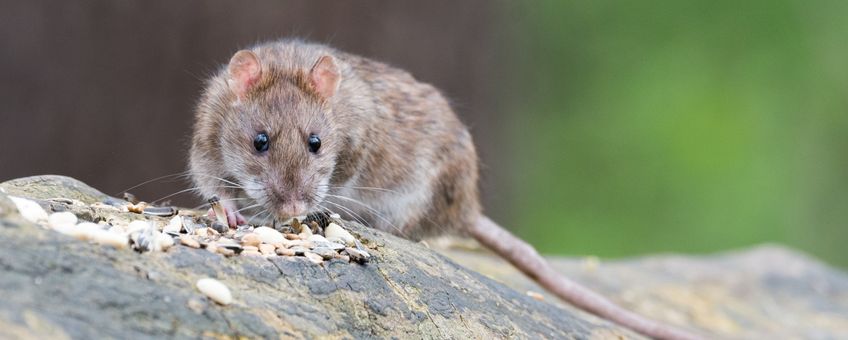
Norway rats exchange different types of favours
University of BernHumans cooperate with each other on a daily basis and on different scales. We cooperate, for instance, by opening the door for others, playing symphonies, building space shuttles or developing schemes to reduce global warming. Although a high level of cooperation is our trademark, cooperation is not uniquely human. Many animals help each other, too, like bees managing their hive.
 Human cooperation often follows the reciprocal strategy 'I help you because you helped me before'. Such reciprocal cooperation has been claimed to be cognitively demanding, especially when different commodities are exchanged. Trading of different commodities is a fundamental component of human interactions, enabling for instance division of labour, which is the basis of our ecological and economic success. It has been argued that the high cognitive demands of such trading may hamper cooperation in non-human animals. In contrast, several studies of wild animals have suggested an exchange of different commodities, but hitherto this has not been examined by controlled manipulations of the behaviour of test subjects.
Human cooperation often follows the reciprocal strategy 'I help you because you helped me before'. Such reciprocal cooperation has been claimed to be cognitively demanding, especially when different commodities are exchanged. Trading of different commodities is a fundamental component of human interactions, enabling for instance division of labour, which is the basis of our ecological and economic success. It has been argued that the high cognitive demands of such trading may hamper cooperation in non-human animals. In contrast, several studies of wild animals have suggested an exchange of different commodities, but hitherto this has not been examined by controlled manipulations of the behaviour of test subjects.
Trading with different currencies
 In an experimental study, Manon Schweinfurth and Michael Taborsky from the Institute of Ecology and Evolution of the University of Bern tested whether common Norway rats engage in reciprocal trading of two different forms of help, i.e. allogrooming and food provisioning. Their test rats experienced a partner either cooperating or non-cooperating in one of the two commodities. To induce allogrooming, the researchers applied salt water on the test rats’ neck, which is hardly accessible to self-grooming, so help by a partner is needed. To induce food provisioning, partner rats could pull food items towards the test rats.
In an experimental study, Manon Schweinfurth and Michael Taborsky from the Institute of Ecology and Evolution of the University of Bern tested whether common Norway rats engage in reciprocal trading of two different forms of help, i.e. allogrooming and food provisioning. Their test rats experienced a partner either cooperating or non-cooperating in one of the two commodities. To induce allogrooming, the researchers applied salt water on the test rats’ neck, which is hardly accessible to self-grooming, so help by a partner is needed. To induce food provisioning, partner rats could pull food items towards the test rats.
Afterwards, test rats had the opportunity to reciprocate favours by the alternative service, i.e. allogrooming the partner after receiving food from it, or donating food after having been allogroomed. The test rats groomed more often cooperating than non-cooperating food providers, and they donated food more often to partners that had heavily groomed them before. Apparently, they traded these two services among another according to the decision rules of direct reciprocity. "This result indicates that reciprocal trading among non-human animals may be much more widespread than currently assumed. It is not limited to large-brained species with advanced cognitive abilities", says Manon Schweinfurth.
This study is published in the scientific journal Current Biology.
Text: Institute for Ecology and Evolution, University of Bern
Photos: Pixabay; Institute for Ecology and Evolution, University of Bern
